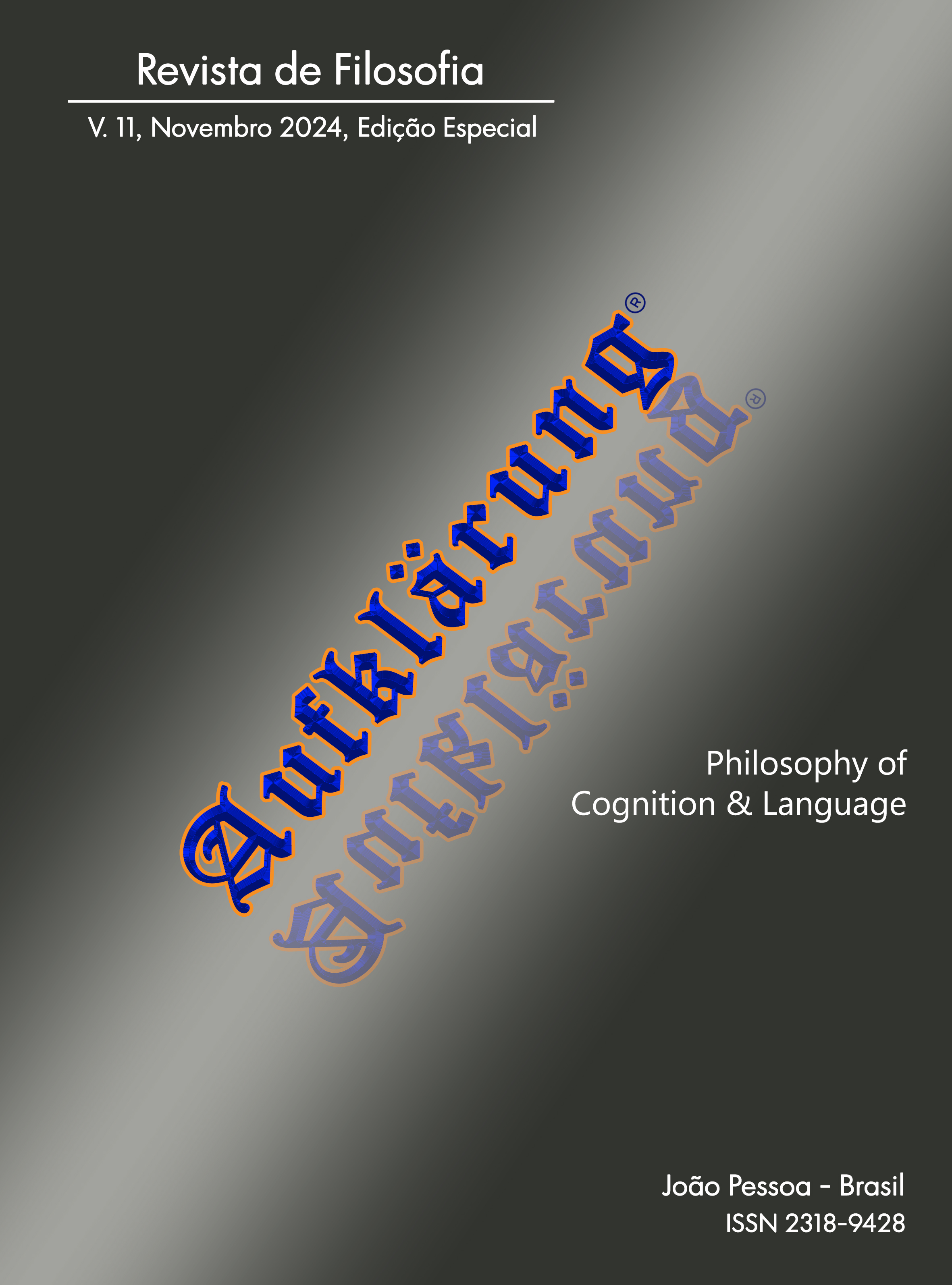The El valor de las creencias testimoniales ante los quasi-testimonios producidos por IA generativa
DOI:
https://doi.org/10.18012/arf.v11iEspecial.70023Keywords:
Confianza, Testimonio, AI, Epistemología, Normatividad socialAbstract
El valor del testimonio como fuente de conocimiento ha sido sujeto de debates epistemológicos. La “trust theory of testimony”, por ejemplo, sugiere que el testimonio humano se basa en una relación afectiva fundada en las normas sociales. Sin embargo, el surgimiento de la inteligencia artificial generativa desafía nuestro entendimiento del testimonio genuino. Así, el concepto de “quasi-testimonio” busca caracterizar las afirmaciones realizadas por entidades no-humanas que imitan el testimonio, pero que carecen de ciertos atributos fundamentales. Este artículo analiza ese problema en profundidad, explorando las perspectivas filosóficas en torno al testimonio y las implicaciones de las tecnologías de IA conversacionales en nuestras practicas epistémicas.
Downloads
References
ADLER, J. Belief's own ethics. Cambridge, MA: The MIT Press, 2006.
BANOVIC, N.; YANG, Z.; RAMESH, A.; LIU, A. Being trustworthy is not enough: how untrustworthy artificial intelligence (AI) can deceive the end-users and gain their trust. Proceedings of the ACM on Human-Computer Interaction, v. 7, p. 01-17, 2023.
BAIER, A. Trust and antitrust. Ethics, v. 96, p. 231-260, 1986.
BUTLIN, P.; VIEBAHN, E. AI assertion. Unpublished manuscript, 21 pages, 2023. <https://doi.org/10.31219/osf.io/pfjzu>
COADY, C. Testimony: aphilosophical study. Oxford: Oxford University Press, 1992.
FAULKNER, P. Knowledge on trust. Oxford: Oxford University Press, 2011.
FAULKNER, P. Testimony and trust. In: SIMON, J. (Ed.). The Routledge handbook of trust and philosophy. New York: Routledge, 2020. p. 329-340.
FRAIWAN, M; KHASAWNEH, N. A review of ChatGPT applications in education, marketing, software engineering, and healthcare: benefits, drawbacks, and research directions. Unpublished manuscript, 22 pages, 2023. Available at <https://doi.org/10.48550/arXiv.2305.00237>
FREIMAN, O. Analysis of beliefs acquired from a conversational AI: instruments-based beliefs, testimony-based beliefs, and technology-based beliefs. Episteme, p. 1-17, ahead of print, 2023.
FRICKER, E. Testimony and epistemic autonomy. In: LACKEY, J.; SOSA, E. (Ed.) The epistemology of testimony. Oxford: Oxford University Press, 2006. p. 225-252.
GOLDBERG, S. Anti-individualism: mind and language, knowledge and justification. Cambridge: Cambridge University Press, 2007.
GOLDBERG, S. What we owe each other, epistemologically speaking: ethico-political values in social epistemology. Synthese,v. 197, p. 4407-4423, 2020.
GRIMALTOS, T.; ROSELL, S. Mentiras y engaños: una investigación filosófica. Madrid: Cátedra, 2021.
GUO, B.; ZHANG, X.; WANG, Z.; JIANG, M.; NIE, J.; DING, Y.; YUE, J.; WU, Y. How close is ChatGPT to human experts? Comparison corpus, evaluation, and detection. Unpublished manuscript, 20 pages, 2023. Available at<https://doi.org/10.48550/arXiv.2301.07597>
HARDWIG, J. Epistemic dependence. The Journal of Philosophy,v. 82, p. 335-349, 1985.
HARDWIG, J. The role of trust in knowledge. Journal of Philosophy,v. 88, p. 693-708, 1991.
HAWLEY, K. Trust: a very short introduction. Oxford: Oxford University Press, 2012.
HINCHMAN, E. Telling as inviting to trust. Philosophy and Phenomenological Research, v. 70, p. 562-587, 2005.
HOLLIS, M. Trust within reason. Cambridge: Cambridge University Press, 1998.
HUME, D. An enquiry concerning human understanding. Cambridge: Cambridge University Press, 1748.
KIDD, C.; BIRHANE, A. How AI can distort human beliefs. Science, v. 380, p. 1222-1223, 2023.
LEHRER, K. Knowledge and the trustworthiness of instruments. Monist, v. 78, p. 156-170, 1995.
LUHMANN, N. Trust and power. New York: Wiley, 1979.
McDOWELL, J. Knowledge by hearsay:meaning, knowledge and reality. Cambridge: Harvard University Press, 1994.
MALLORY, F.Fictionalism about chatbots._Ergo,_v. 10, p. 1082-1100, 2023.
MERTON, R. Science and technology in a democratic order. Journal of Legal and Political Sociology,v. 1, p. 115-126, 1942.
MORAN, R. Getting told and being believed. In: LACKEY, J.; SOSA, E. (Ed.) The epistemology of testimony. Oxford: Oxford University Press, 2018. p. 272-306.
MILLER, B.; FREIMAN, O. Trust and distributed epistemic labor. In: SIMON, J. (Ed.) The Routledge handbook on trust and philosophy. New York: Routledge, 2020. p. 341-353.
O’NEILL, M. ChatGPT diagnoses cause of child’s chronic pain after 17 doctors failed. The Independent, 13 September 2023.<https://www.independent.co.uk/news/health/chatgpt-diagnosis-spina-bifida-mother-son-b2410361.html>.
OWENS, D. Reason without freedom: the problem of epistemic normativity. New York: Routledge, 2000.
OWENS, D. Testimony and assertion:normativity and control. Oxford: Oxford University Press, 2006.
REID, T. Inquiry into the human mind on the principles of common sense. In: BEANBLOSSOM, R.; LEHRER, K. (Ed.) Thomas Reid’s Inquiry and essays. Indianapolis: Hackett, 1983. p. 01-126.
ROSS, A. Why do we believe what we are told? Ratio,v. 28, p. 69-88, 1986.
WILLIAMS, B. Deciding to believe. In: WILLIAMS, B. Problems of the self: philosophical papers1956-1972. Cambridge: Cambridge University Press, 1973. p. 136-151.
WRIGHT, S. Knowledge transmission. New York: Routledge, 2019.
Additional Files
Published
How to Cite
Issue
Section
License

This work is licensed under a Creative Commons Attribution 4.0 International License.
Journal general policy
1.This journal works under a Creative Commons License aplied to online journals. That icence can be read in the following link: Creative Commons Attribution 4.0 International (CC BY 4.0).
2.Accordingly to this License, a)the journal declares that authors hold the copyright of their articles without restrictions, and they can archieve them as post-print elsewhere. b)the journal allow the author(s) to retain publishing rights without restrictions.
Metadata Policy for information describing items in the repository
1. Anyone may access the metadata free of charge at anytime.
2.The metadata may be re-used in any medium without prior permission, even commercial purposes provided the OAI Identifier or a link to the original metadata record are given, under the terms of a CC BY license refered for the Journal.







































